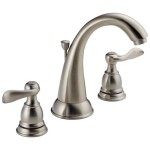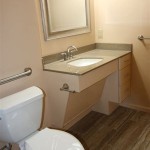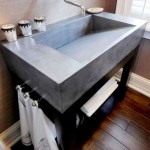Is Bathroom Tap Water Safe to Drink in Scotland?
Scotland boasts high-quality drinking water, regulated by the Drinking Water Quality Regulator for Scotland (DWQR). This rigorous oversight ensures compliance with stringent safety standards, contributing to Scotland's reputation for clean, potable tap water. However, the question remains: is the water specifically from bathroom taps safe for consumption?
Potential Contaminants in Bathroom Tap Water
While Scottish tap water is generally safe, certain factors unique to bathroom plumbing can introduce potential contaminants. Understanding these risks provides a clearer picture of the safety of drinking water from bathroom taps.
Several factors can influence the potability of bathroom tap water:
- Biofilm: The moist environment of bathrooms can encourage biofilm growth within pipes. Biofilm is a collection of microorganisms that can harbor bacteria, though typically not in harmful concentrations.
- Stagnant Water: Water sitting in pipes for extended periods, particularly in less frequently used bathrooms, can experience a drop in chlorine levels, potentially allowing bacterial growth.
- Lead Pipes (Older Properties): Some older properties may still have lead pipes. While Scottish Water works to replace these, lead can leach into the water, posing a health risk.
- Aerosolized Contaminants: Bathroom activities like showering and flushing toilets can release microscopic particles into the air, which can settle in open containers or on tap spouts.
Scottish Water Regulations and Bathroom Taps
Scottish Water regulations apply to all tap water intended for human consumption. The regulations do not specifically differentiate between kitchen and bathroom taps. The emphasis is on ensuring that the water supplied to the property meets the required standards at the point of entry.
Factors Affecting Water Quality in Bathroom Taps
The quality of water from bathroom taps can be influenced by several factors within the property itself:
- Pipe Material: As mentioned earlier, lead piping can contaminate water. Other materials, like copper, can also corrode over time, though generally at lower risk levels.
- Maintenance of Plumbing System: Regularly flushing the system and cleaning taps can help minimize biofilm buildup and prevent stagnation.
- Water Temperature: Cold water taps are generally considered safer than hot water taps for drinking. Hot water can dissolve metals from pipes more readily.
Recommendations for Drinking Water from Bathroom Taps
While Scottish tap water is generally safe, caution is advised regarding bathroom taps. To minimize potential risks:
- Run the Tap: Before drinking, let the cold water run for a short period to flush out any stagnant water.
- Use Cold Water: Always opt for cold water for drinking, as hot water can increase the risk of metal leaching from pipes.
- Consider a Filter: If concerned, using a water filter specifically designed for tap water can offer additional peace of mind.
Testing Your Water
Homeowners can have their water tested for lead and other contaminants. Several accredited laboratories offer testing services. This can help identify potential issues specific to the property's plumbing.
Lead in Drinking Water
Lead contamination remains a concern, particularly in older properties. Scottish Water provides resources and guidance on lead in drinking water, including information on identifying lead pipes and steps to reduce exposure.
- Identifying Lead Pipes: Lead pipes are typically dull grey and softer than copper pipes. Scratching the surface can reveal a shiny silver layer underneath.
- Scottish Water's Lead Replacement Scheme: Scottish Water has ongoing programs for lead pipe replacement in their network. Homeowners can contact them for information regarding their property's connection.
Importance of Regular Plumbing Maintenance
Regardless of the water source within a home, regular plumbing maintenance is crucial for ensuring water quality. This includes checking for leaks, flushing the system, and cleaning taps. Professional plumbers can also assess the condition of pipes and identify potential problems.
Communicating with Scottish Water
For specific concerns about water quality, it's always recommended to directly contact Scottish Water. They can provide information about the water supply in your area and offer guidance on any necessary precautions.

Is It Safe To Drink Water From The Bathroom Tap Glasgow Live

Can You Drink Tap Water In Scotland The Facts Revealed Out About
People Are Only Just Discovering Why You Shouldn T Drink Water From The Bathroom Tap

Can You Drink Scottish Tap Water A Guide To Treatment
People Are Only Just Discovering Why You Shouldn T Drink Water From The Bathroom Tap

Why You Should Never Drink Water From The Bathroom Tap Daily Mail
People Are Only Just Discovering Why You Shouldn T Drink Water From The Bathroom Tap

Furious Man Fears Murky Brown Tap Water Is Making His Mother In Law 91 Ill Mirror
Drinking Water From Your Bathroom Could Be Bad For Health

Warning Not To Drink From Bathroom Taps If You Live In Certain Houses Is Yours On The List Sun







